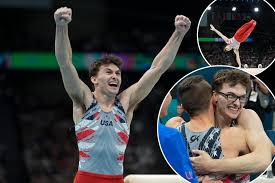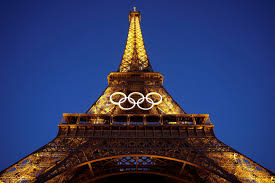Tiktok: Revolutionary Advertising for the Olympics
Payton Costenbader
Marketing Editor
The Olympics is arguably the most globally anticipated athletic event. With over 200 countries participating this past summer, it is already a well-known competition that brings in viewers from around the world to spectate. This year, the viewership at NBCUniversal was like no other showing results of up nearly 82% from the Tokyo Olympics that was held in the summer of 2021. This recent summer, the Olympics took place in Paris, France and brought in an average of 30.6 million viewers each night, compared to 15.6 million that watched the Tokyo Olympics. This dramatic difference in viewers can be attributed to many different factors, such as the disruption of the Covid-19 pandemic in 2020 that delayed the summer games, but one key component in the success of this year’s Olympics was the reliance of social media marketing that took place on TikTok.
The internet quickly became infatuated with the athletes, creating videos spliced from clips of the competition paired with popular songs to form narratives that gave uniqueness to the athletes. One athlete that stood out hugely is Stephen “Pommel Horse” Nedoroscik. This alum of PennState University was a risk for the United States team to choose, as Stephen only has one area of expertise, the Pommel Horse. Bringing a specialist onto the team is an uncommon choice for the Olympics so there was speculation from the viewers about this decision to invite Nedoroscik to Paris to compete. This speculation was blown away by his fantastic performance helping land the US Men’s Gymnastics team their first medal in 16 years. Fans instantly jumped at the opportunity to create videos of his routine edited with inspirational music, or jokes about him being the Superman of Men’s gymnastics, in reference to him removing his glasses before competing.
The fame was instant for Nedoroscik, he became an overnight sensation. TikTok user-generated content encouraged fans to tune into the Olympic events and watch their newfound idols compete. Younger generations tend to focus more on highlights and clips of athletic events. The reliance on user-generated content as a marketing strategy made a huge impact on the number of audiences that the Olympics was able to inspire. People found interest in new events, such as the Pommel Horse, from videos shared of Nedoroscik and it inspired more viewers to watch the live events.

This virality was not limited to a single athlete, there were dozens of other athletes highlighted by this wave of content that marketed the Olympics in creative ways to appeal to younger audiences. To provide perspective on the impact that Tiktok had on the popularity of the Summer Olympics, the hashtag, “#Olympics” received over 1.7 million posts and over 2 billion likes. This advertising method is unique as it is entirely authentic. There are nearly no regulations on the type of videos that the users of the platform could be creating, besides the standard TikTok guidelines that all content creators must follow. Unfortunately, due to this lack of control the Olympic athletes were also able to receive instant negative feedback. This feedback was also delivered through hysterical videos and clever puns, but it affected the athlete’s credibility and threatened an instant replay of any athlete’s less impressive moments.
An athlete who also received overnight popularity, but was not as lucky as Stephen Nedoroscik, was Dr. Rachael Gunn. This Australian break-dancer was harshly criticized for the performance she brought to the competition. Rachael is ranked number 1 by the World Dance Sport Federation however she received a score of 0 in the first round and did not progress in the competition. Gunn, commonly known as Raygun, proceeded to become the punchline to many jokes and was subjected to harsh cyberbullying, however, as P.T Barnum once said, “Any publicity is good publicity.” While this was not positive for Rachael’s individual career, it brought attention to the Olympics and encouraged people to tune in. This was the risky strategy of advertising that brought the incredibly high rate of viewership to streaming platforms.
The amount of publicity generated through this content was hugely successful in attracting viewers and allowing the Summer 2024 Olympics held in Paris, France to be a huge success. This method of marketing the competition was centrally focused on gaining viewers and the effect on athletes’ careers was a byproduct of the viewers’ opinions. Tiktok was an official partner for the 2024 Olympic and Paralympic games.
Contact Payton at costenpa@shu.edu

